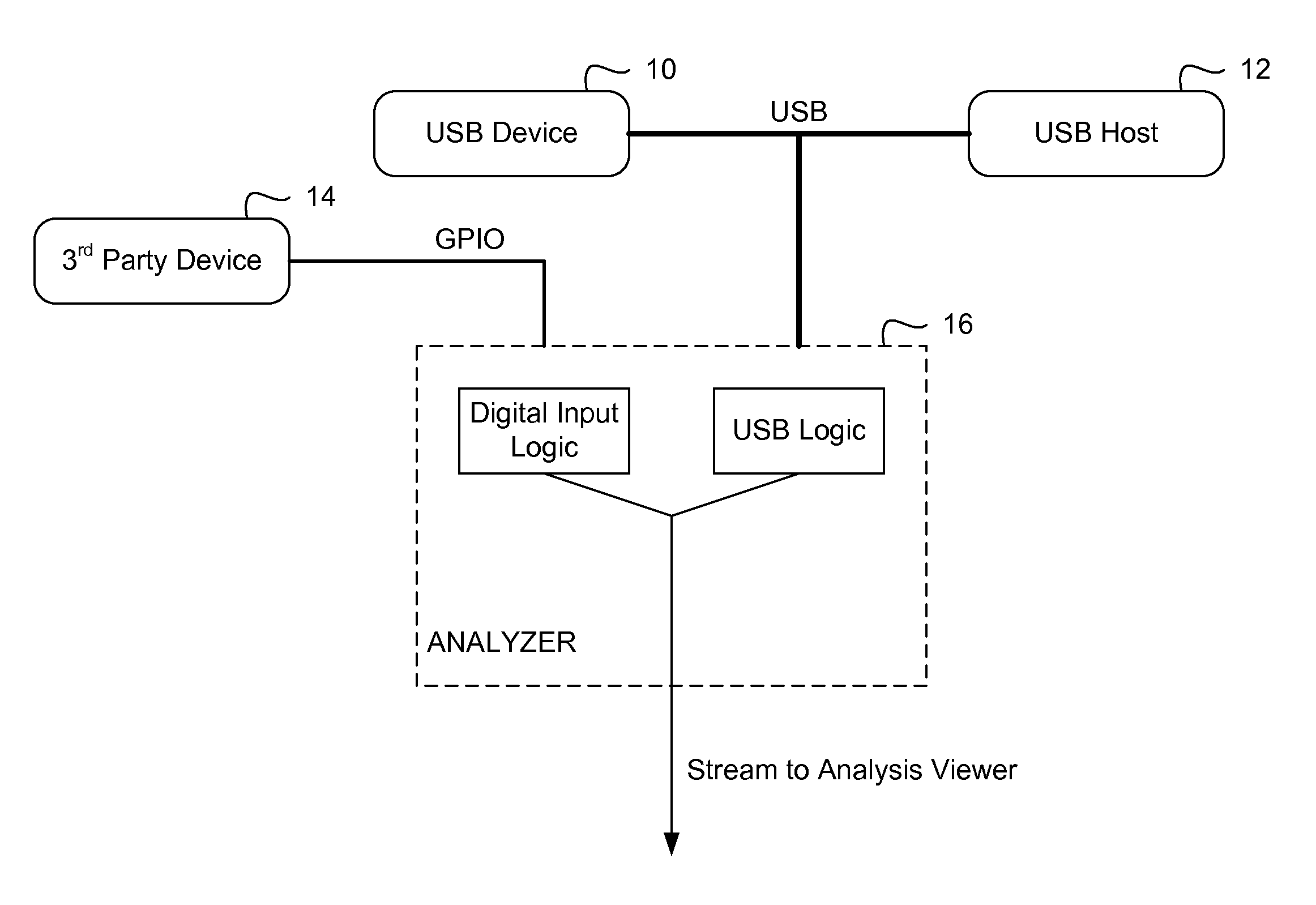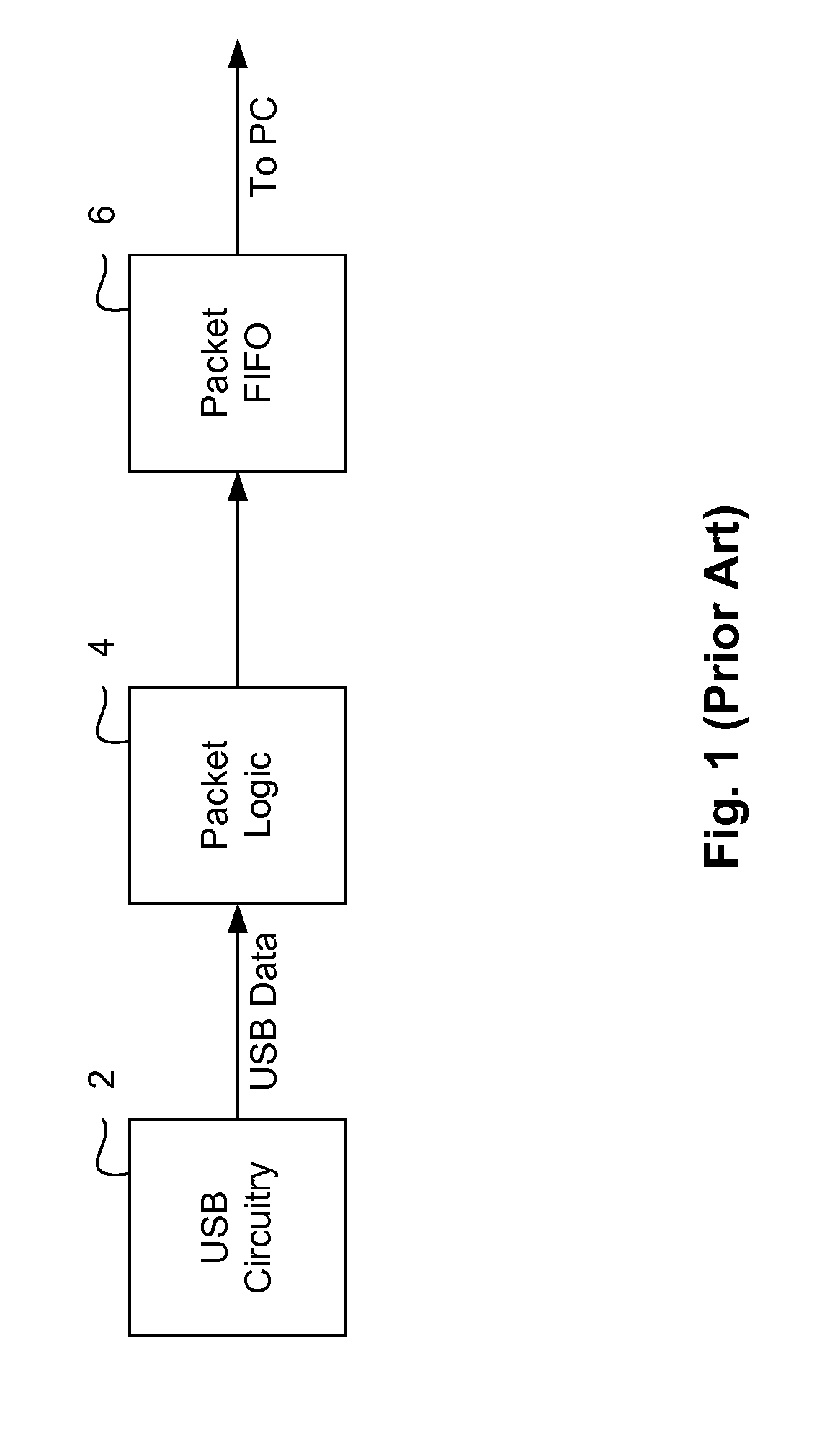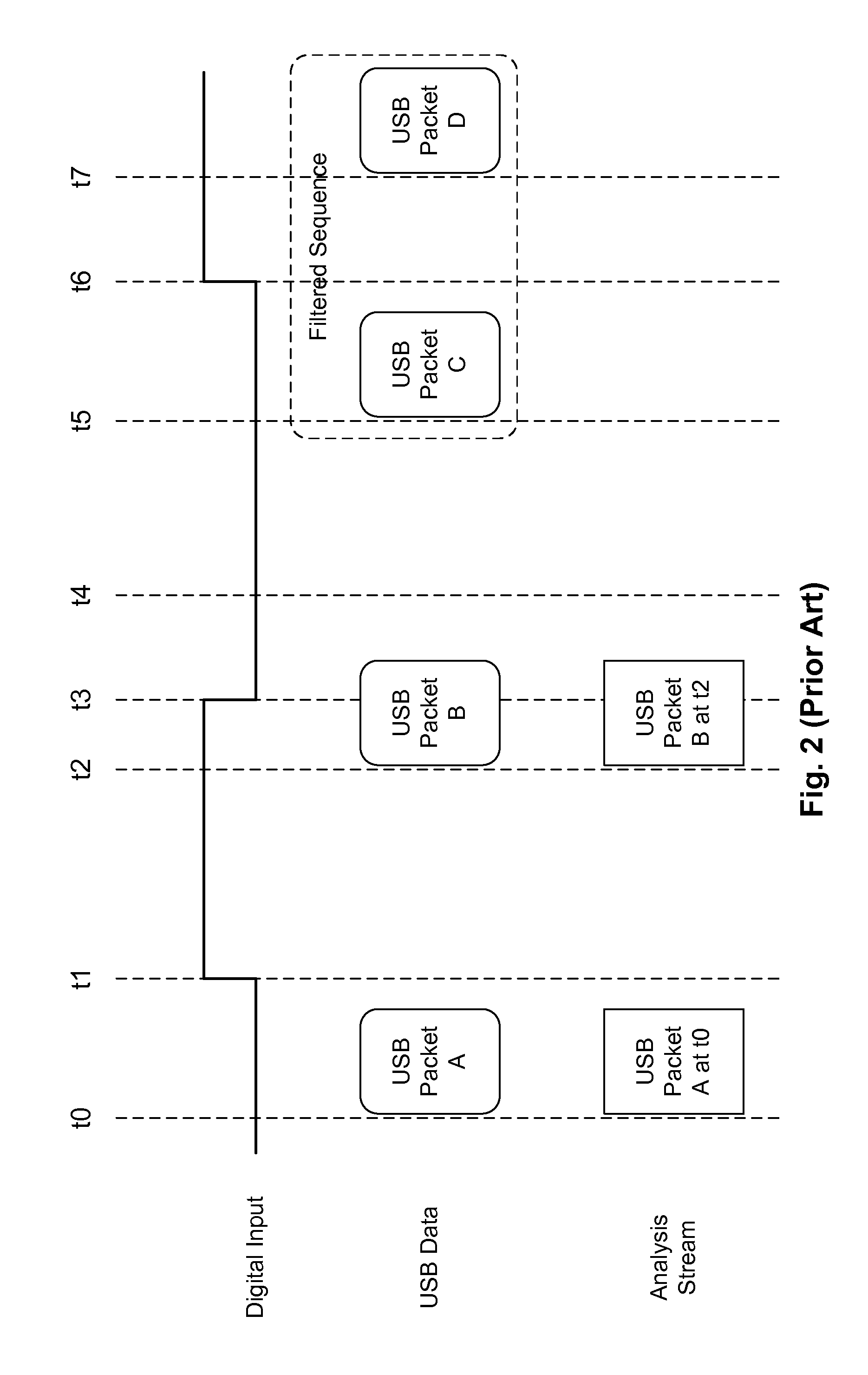Methods for embedding an out-of-band signal into a USB capture stream
a technology of usb and out-of-band signals, applied in the field of usb capture streams, can solve the problems of not allowing users to see the state of non-usb-related signals, protocol analyzers that do not provide methods for allowing out-of-band signals to be captured, and protocol analyzers that typically do not have the ability to tag non-usb-related external events, etc., to achieve efficient and intelligent handling
- Summary
- Abstract
- Description
- Claims
- Application Information
AI Technical Summary
Benefits of technology
Problems solved by technology
Method used
Image
Examples
Embodiment Construction
[0025]FIG. 3 illustrates a block diagram for monitoring a USB connection and general purpose input signals by an analyzer of the present invention. A USB host 12 and a USB device 10 communicate through USB ports, which are connected with each other via bus lines. An analyzer 16 monitors the bus lines. A general purpose output of a third party device 14 is connected to the analyzer's 16 general purpose input. The third party device 14 can be any device, including the USB host 12, the USB device 10, or other devices. The analyzer 16 combines the USB data and the digital input information and outputs it to an analysis viewer.
[0026]In order to minimize memory usage, the state of the input signal can be set to only send data when a change in the monitored line is detected. Additionally, in order to conserve other on-board resources, as well as bandwidth, the information of the input signals may be sent within the same analysis stream as the captured USB data to the analysis viewer. Due t...
PUM
 Login to View More
Login to View More Abstract
Description
Claims
Application Information
 Login to View More
Login to View More - R&D
- Intellectual Property
- Life Sciences
- Materials
- Tech Scout
- Unparalleled Data Quality
- Higher Quality Content
- 60% Fewer Hallucinations
Browse by: Latest US Patents, China's latest patents, Technical Efficacy Thesaurus, Application Domain, Technology Topic, Popular Technical Reports.
© 2025 PatSnap. All rights reserved.Legal|Privacy policy|Modern Slavery Act Transparency Statement|Sitemap|About US| Contact US: help@patsnap.com



